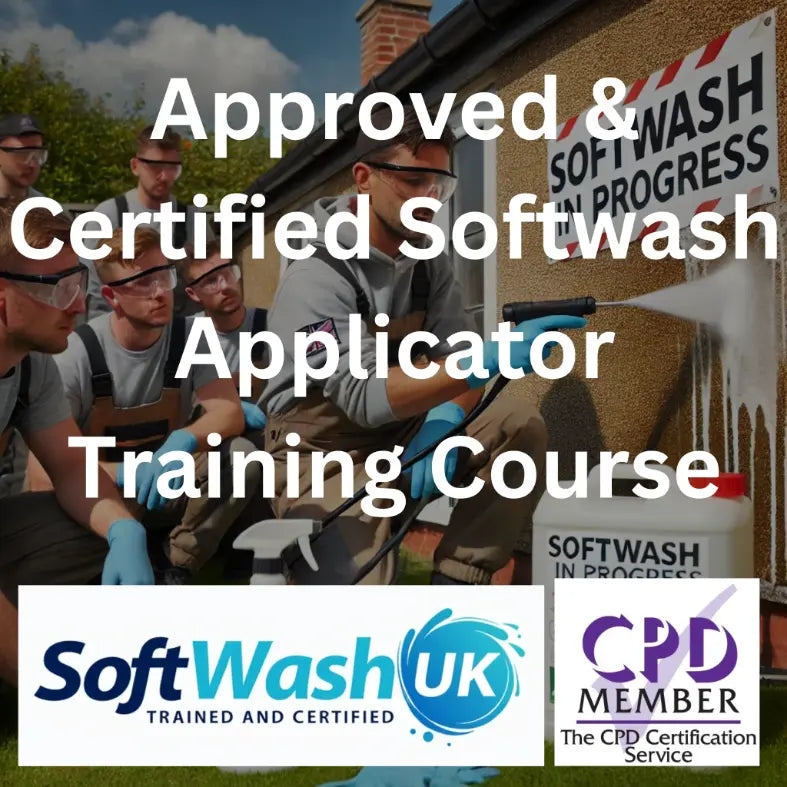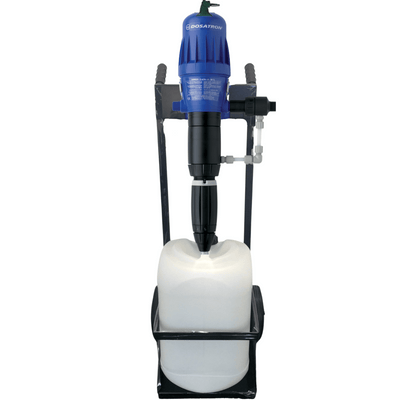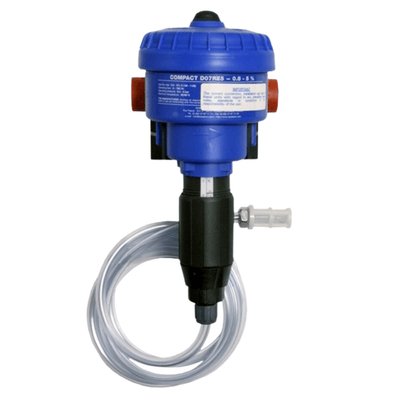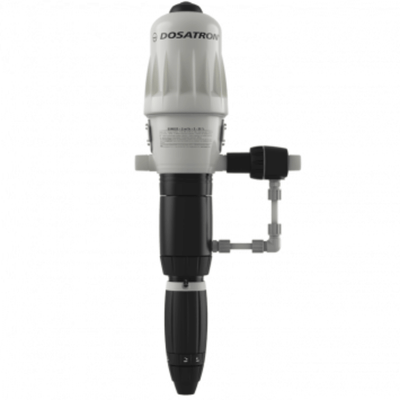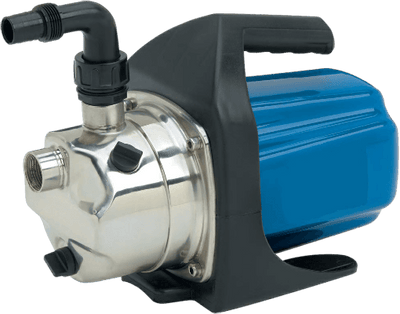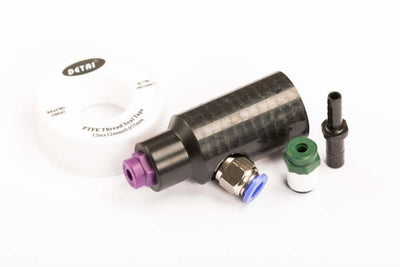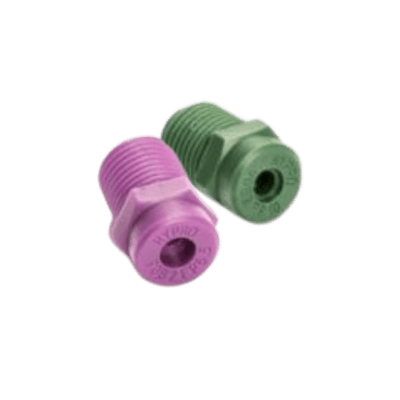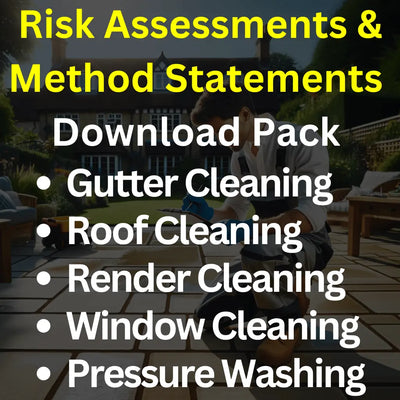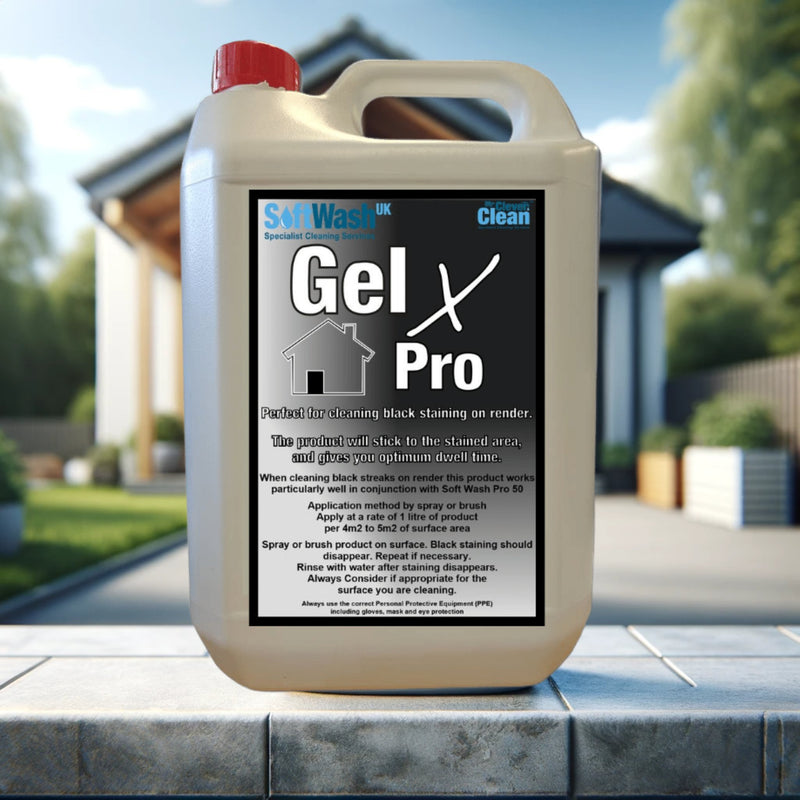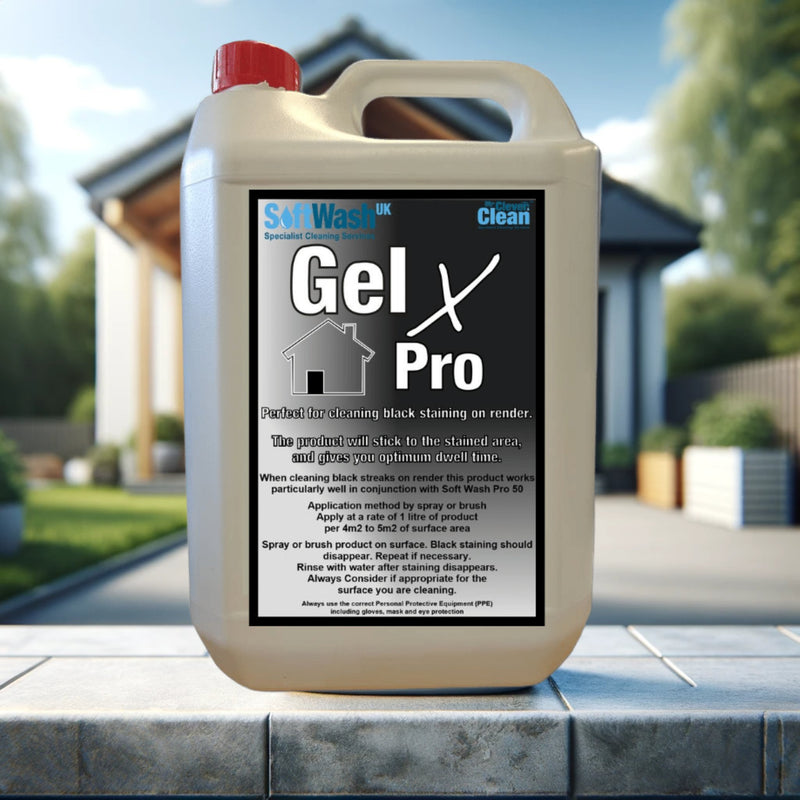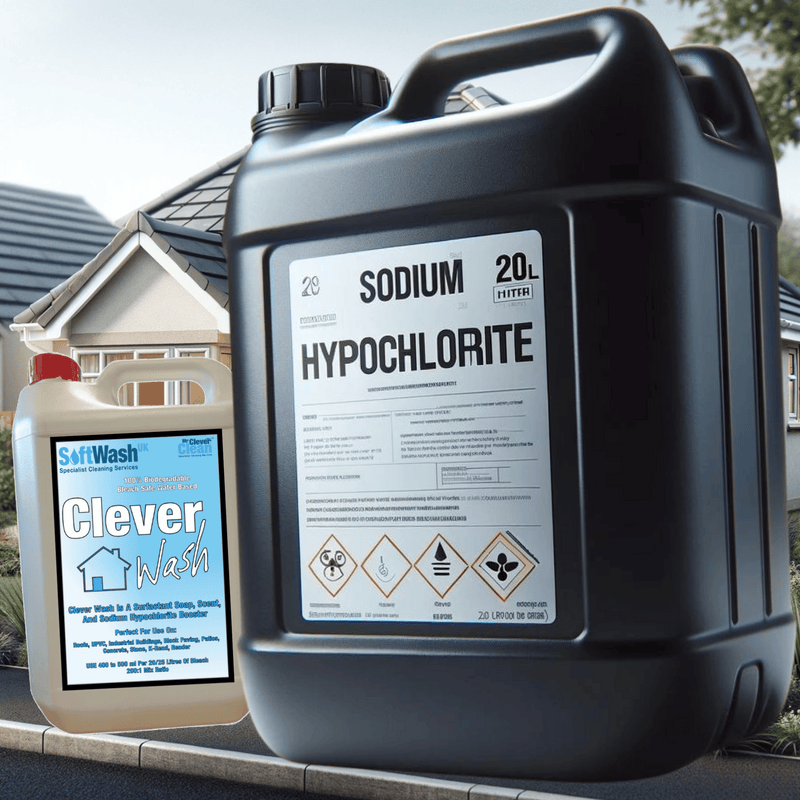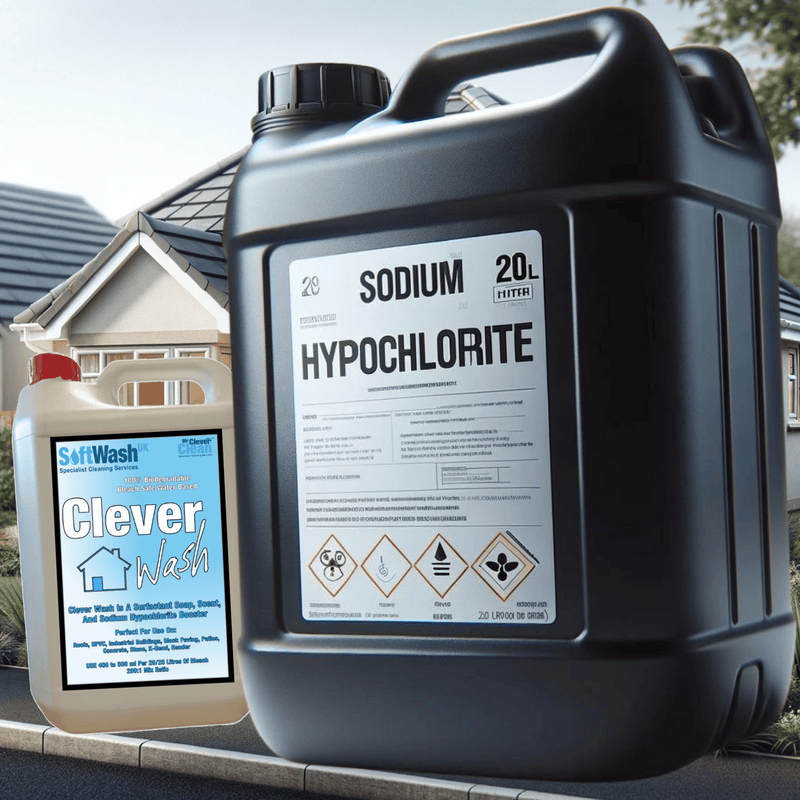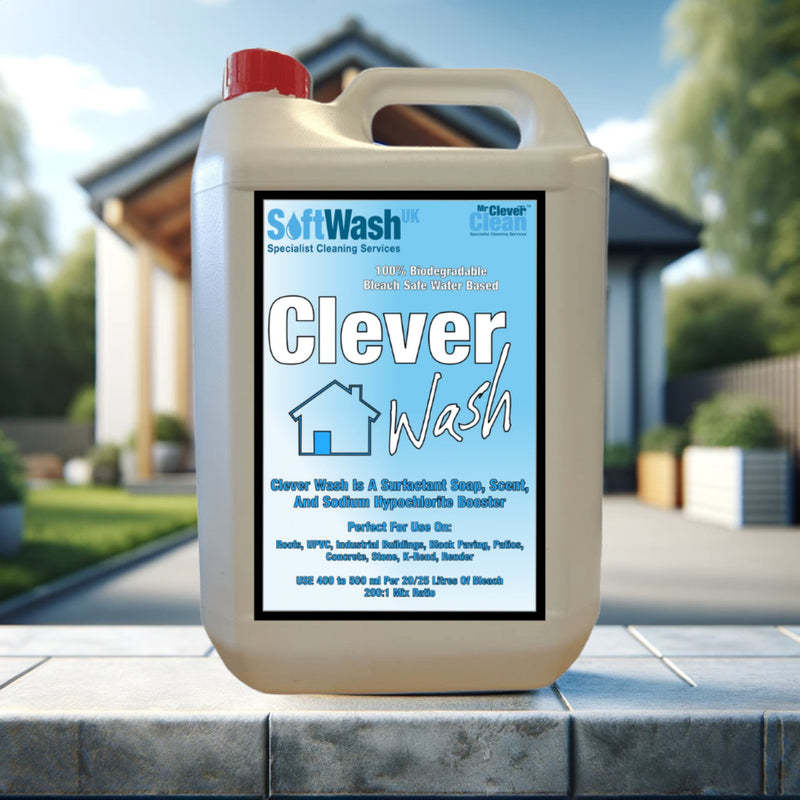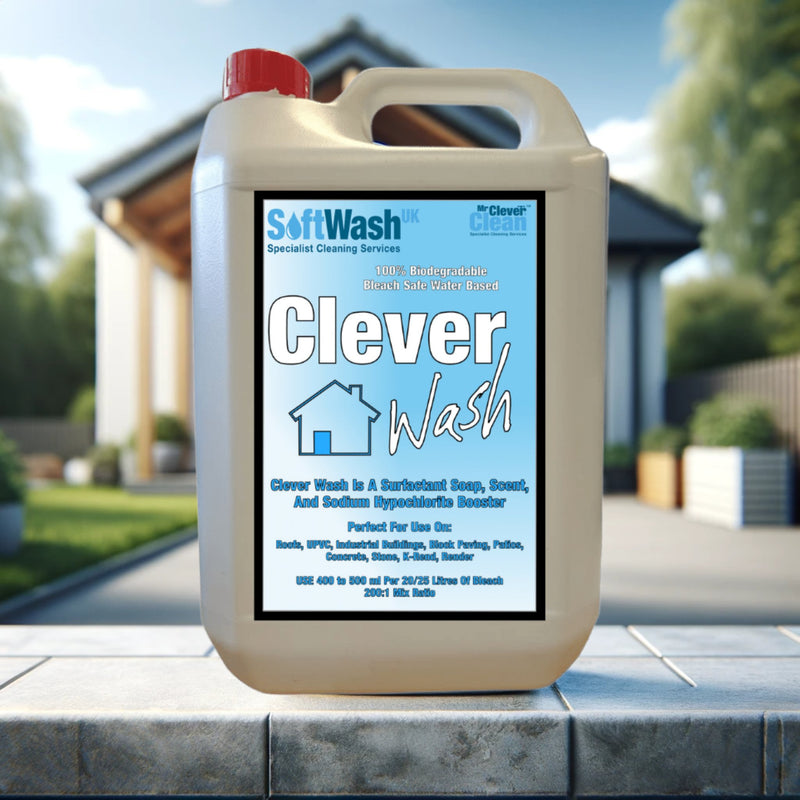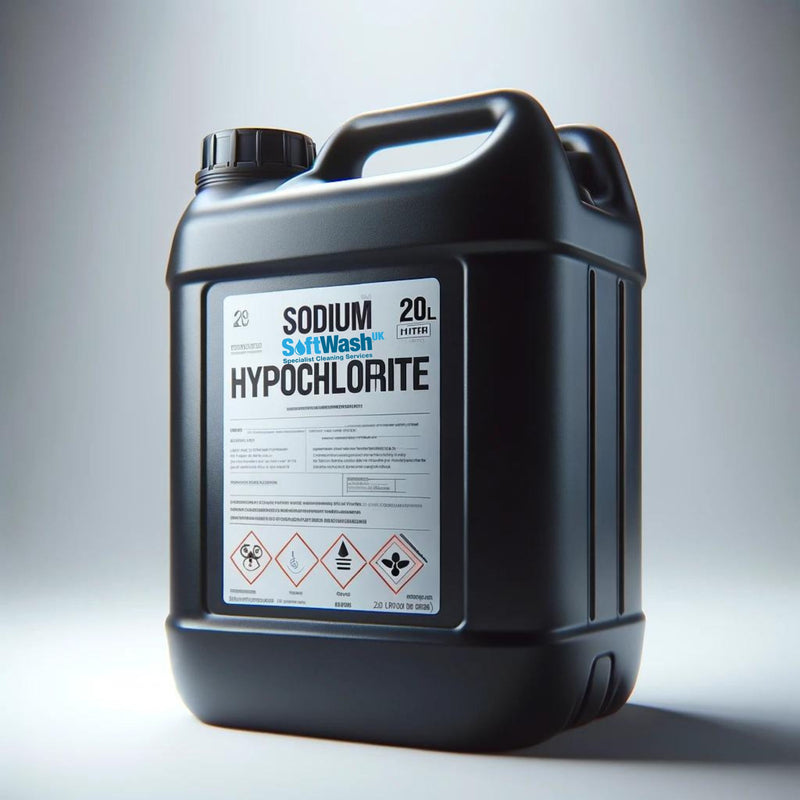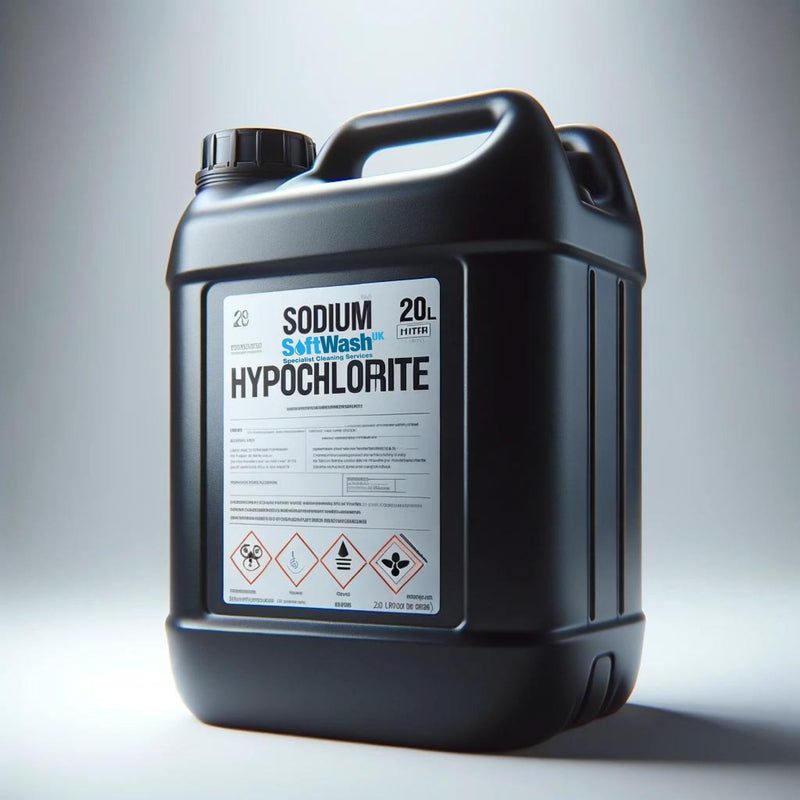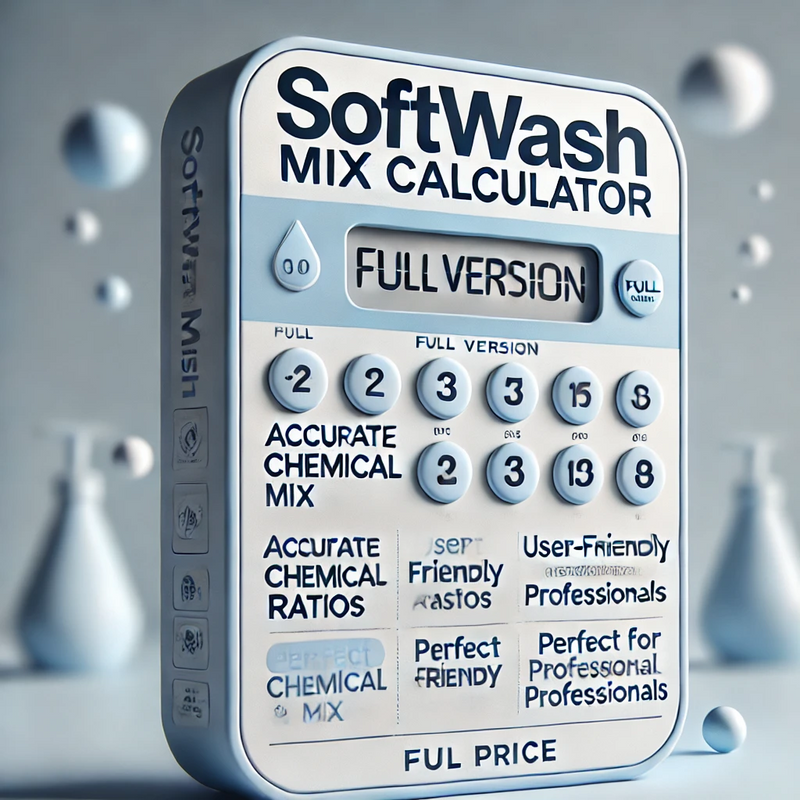SoftWash UK Approved & Certified Softwash Applicator Training Course
Become a Certified Softwashing Expert with the UK’s Premier Training Program!
Become a SoftWash UK Certified Approved Soft Wash Applicator
BOOK NOW
Join the SoftWash UK Approved & Certified Softwash Applicator Training Course – Your Gateway to a Thriving Career in Exterior Cleaning.
- Gain CPD-certified credentials and stand out in the competitive market.
- Master hands-on techniques, advanced equipment, and eco-friendly practices.
- Build a successful business with tailored support and ongoing resources.
Enroll Now and Start Your Certification Journey!
Struggling to Break Through in the Exterior Cleaning Industry?
- Lack of Trusted Certification: Clients demand expertise and proof of professional training.
- Limited Knowledge of Modern Techniques: Falling behind industry standards.
- Difficulty Pricing and Managing a Business: Struggles with client acquisition and profitability.
This Course Is Your Solution
With comprehensive modules, hands-on training, and CPD certification, you'll gain the skills and credibility to elevate your career and grow your business.
Why Softwashing Matters
Why Softwashing Is the Future of Exterior Cleaning
Softwashing is more than just cleaning—it’s a specialized approach to restoring and protecting exterior surfaces. Unlike pressure washing, it’s safer, gentler, and highly effective.
- Prevents Surface Damage: Ideal for delicate materials like render, stucco, and wood.
- Kills Organic Growth at Its Source: Removes algae, moss, and lichen for lasting results.
- Eco-Friendly Solutions: Safe for plants, animals, and the environment.
- Enhances Property Value: Creates a pristine appearance that boosts curb appeal.
Discover the difference softwashing makes – join the experts today!
Course Benefits
What You’ll Gain from This Training
- CPD-Certified Credential: A professional qualification that builds client trust.
- Hands-On Training: Learn practical skills with state-of-the-art equipment.
- Comprehensive Curriculum: Modules covering everything from chemistry to pricing.
- Business Growth Strategies: Tailored support to help you thrive.
- Ongoing Professional Development: Stay updated with exclusive resources.
Sign Up Now to Transform Your Career
Course Curriculum Overview
A Course Designed to Build Experts
Our training program covers everything you need to know, including:
- Introduction to Softwashing: Basics, history, and advantages over pressure washing.
- Chemistry of Cleaning: Safe and effective use of solutions like sodium hypochlorite.
- Equipment and Tools: Maintenance and troubleshooting.
- Techniques and Methods: From dwell times to post-cleaning care.
- Health and Safety: COSHH compliance and risk assessment.
- Business Aspects: Pricing, marketing, and client management.
Testimonials
Hear from Our Graduates
"This course transformed my business. Training was invaluable, and the certification gave me the edge I needed to attract high-paying clients."
— James R., Certified SoftWash UK Applicator
"Mark Cave is an incredible instructor. His insights and practical tips have completely changed how I approach softwashing."
— Tom Pine., Course Graduate
Enroll Today and Join Our Success Stories
Instructor Introduction
Meet Your Instructor – Mark Cave
Mark Cave, the visionary behind SoftWash UK, brings decades of expertise to this training program. As a pioneer in the industry, he’s dedicated to helping professionals succeed with cutting-edge techniques and proven strategies.
"My mission is to empower you with the skills, knowledge, safety and confidence to excel in the softwashing industry. Together, we’ll elevate your career to new heights."
Comparison Block
Why Choose SoftWash UK?
| Feature | SoftWash UK | Other Programs |
|---|---|---|
| CPD Certification | ✅ | ❌ |
| 15 hrs Video Training 3 Day Course | ✅ | ❌ |
| Business Growth Modules | ✅ | ❌ |
| Ongoing Resources | ✅ | ❌ |
Choose the Best – Enroll Today
Pricing & Enrollment
Choose Your Path to Certification
- Premium Package: Includes training, certification, and exclusive branding materials – £600
Frequently Asked Questions
Got Questions? We’ve Got Answers!
Who is this course for?
Anyone looking to start or grow their career in softwashing, from beginners to professionals.
Do I need prior experience?
No prior experience is necessary—just a willingness to learn and grow.
What’s included in the certification?
You’ll receive a CPD-certified diploma, directory listing, and branding materials.
How long does the course take?
The course is designed to be completed within 3 days.
Still Have Questions? Call Mark
Your Career in Softwashing Starts Here
Join a network of certified professionals transforming the exterior cleaning industry.
Enroll Now and Elevate Your Expertise!

National Association of Soft Wash (NASW)
About the NASW
The National Association of Soft Wash (NASW) is the UK’s leading professional body for exterior cleaning specialists, committed to raising standards and providing essential support to softwashing businesses.
Membership is exclusively available to individuals who have successfully completed the accredited Softwashing Training Course by Softwash UK, ensuring every member operates to the highest professional and safety standards.
Why Join the NASW?
By joining the NASW, you gain access to a wealth of resources, support, and industry recognition designed to elevate your business and distinguish you as a trusted expert in the field of softwashing.
Membership Benefits
For Your Professional Growth
- Exclusive Certification: Receive your official NASW Certificate of Membership, a professional credential that demonstrates your commitment to industry excellence.
- Monthly Zoom Meetings: Participate in monthly online meetings featuring discussions on softwashing topics, new industry developments, and expert guest speakers.
- Access to the NASW Logo: Display the NASW Member Logo on your website, marketing materials, and uniforms, instantly boosting your business’s credibility.
- Softwashing Best Practices: Access exclusive guides, templates, and resources tailored to the UK’s softwashing industry, including health and safety documentation, risk assessments, and pricing calculators.
Industry Recognition and Networking
- Be listed in the NASW Member Directory, a resource used by customers and partners to find trusted professionals.
- Connect with other softwashing experts and industry leaders to share knowledge and grow your network.
Ongoing Education and Support
- Stay updated with newsletters covering the latest industry trends, regulations, and innovations.
- Access additional learning resources to continually refine your skills.
For Your Business Credibility
- Increased Customer Trust: Membership signals to potential clients that you are fully trained, certified, and committed to professional standards.
- Industry Accreditation: Your membership and training certification provide a competitive edge, helping you secure more contracts.
- Exclusive Member Directory Listing: Customers can verify your credentials and find your business on the NASW website.
- Distinction in Marketing: Stand out by highlighting your NASW membership in your marketing efforts.
Membership Requirements
To ensure the highest standards within the industry, NASW membership is exclusively available to individuals who meet the following criteria:
Completion of Accredited Training
Only individuals who have successfully completed the Softwash UK Accredited Training Course and achieved certification are eligible to join. This ensures every member is equipped with the knowledge and skills required for safe, effective, and professional softwashing.
Membership Cost
- Annual Cost: £300
- Paid Monthly: £25 per month
How to Join
- Complete the Softwash UK Accredited Training Course and receive your certification.
- Visit our membership page to sign up and set up your monthly payment plan.
- Gain instant access to all the exclusive benefits of the NASW.
Position Yourself as a Leader in Softwashing
By becoming a member of the National Association of Soft Wash (NASW), you are taking a vital step in enhancing your professional reputation and growing your business. Membership not only provides you with valuable tools, resources, and networking opportunities but also sets you apart as a certified, credible expert in the eyes of your customers.
Ready to Join the NASW?
Don’t miss this opportunity to elevate your business and stand out in the growing softwashing industry. Join the NASW today and become part of a community of trusted professionals dedicated to excellence.
SoftWash UK Approved & Certified Softwash Applicator Directory
Welcome to the SoftWash UK Approved & Certified Applicator Directory, your trusted resource for finding certified professionals who bring your exterior cleaning dreams to life! Whether you're a small business owner needing a sparkling storefront or a homeowner tackling stubborn grime, this directory connects you with industry experts trained to deliver the ultimate clean without the stress.
Why Choose a Certified SoftWash UK Applicator?
When it comes to exterior cleaning, quality and trust are everything. Here’s why hiring a certified applicator is the smart choice:
🌟 Expertise You Can Trust
- Fully trained to SoftWash UK's rigorous standards.
- Equipped with specialized equipment and eco-friendly cleaning solutions.
- Skilled in tackling tough stains, mold, algae, and dirt effectively.
🌍 Eco-Friendly Practices
SoftWash applicators prioritize environmentally safe techniques that protect your plants, pets, and property while delivering a thorough clean.
🔒 Safety Comes First
Certified applicators follow stringent safety protocols to ensure every job is handled with care, whether it’s a residential driveway or a commercial roof.

✅ What Services Can You Expect?
SoftWash UK certified applicators offer a wide range of services, tailored to meet every cleaning need:
- Roof Cleaning: Remove algae, lichen, and moss without high-pressure damage.
- Driveway & Patio Cleaning: Restore surfaces to their original beauty.
- Exterior Wall Washing: Gentle but effective cleaning for walls, brickwork, and render.
- Commercial Property Maintenance: A sparkling business is a welcoming business!
How to Use the Directory
1️⃣ Search by Location
Enter your area to find certified applicators near you.
2️⃣ Check Credentials
Each listing features verified certifications so you can book with confidence.
3️⃣ Contact & Schedule
Reach out directly to discuss your project and schedule a visit.
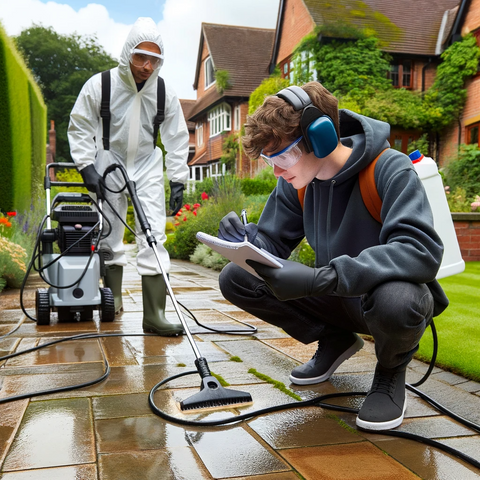
Health & Safety Matters
When using SoftWash services, rest assured that:
- All cleaning agents are biodegradable UK compliant COSHH .
- Applicators follow risk assessments for safe chemical handling.
- Proper PPE is worn to minimize risks during application.
- Surfaces are tested beforehand to ensure compatibility and safety.
FAQs
-
What is SoftWashing?
A low-pressure cleaning technique using water-based, biodegradable solutions. -
How do I know if someone is certified?
Only certified applicators appear in this directory, verified by SoftWash UK. -
Is SoftWashing safe for pets and plants?
Yes! Certified applicators use eco-friendly products and take precautions to protect your surroundings. -
Can SoftWashing remove tough stains?
Absolutely—mold, algae, and even rust stains can be eliminated with this technique. -
How often should I schedule a SoftWash?
Depending on the surface, most customers opt for yearly cleaning. -
What areas are covered by the directory?
This directory spans all of the UK—simply search by postcode. -
Do SoftWash applicators provide free estimates?
Most applicators do! Check individual listings for details. -
Will SoftWashing damage paint or surfaces?
No—SoftWashing is designed to be gentle yet effective. -
What’s the difference between pressure washing and SoftWashing?
SoftWashing uses lower pressure and specialized solutions, making it safer for delicate surfaces. -
How do I book a service?
Use the contact information provided in each applicator's listing to book directly.
Get Started Today!
Don’t wait—your dream of a clean, stunning exterior is just a few clicks away! Browse our directory now and find a certified SoftWash UK applicator near you.

Final Note
While SoftWash techniques are safe for most surfaces, it’s essential to consult with your applicator to confirm compatibility. Always test on a small area if you're unsure.
Say goodbye to grime and hello to shine—SoftWash UK has you covered!
| Shipping | This item ships to |
| Delivery | Estimated between and . Will ship within 1 business day. |
Description
SoftWash UK Approved & Certified Softwash Applicator Training Course
Become a Certified Softwashing Expert with the UK’s Premier Training Program!
Become a SoftWash UK Certified Approved Soft Wash Applicator
BOOK NOW
Join the SoftWash UK Approved & Certified Softwash Applicator Training Course – Your Gateway to a Thriving Career in Exterior Cleaning.
- Gain CPD-certified credentials and stand out in the competitive market.
- Master hands-on techniques, advanced equipment, and eco-friendly practices.
- Build a successful business with tailored support and ongoing resources.
Enroll Now and Start Your Certification Journey!
Struggling to Break Through in the Exterior Cleaning Industry?
- Lack of Trusted Certification: Clients demand expertise and proof of professional training.
- Limited Knowledge of Modern Techniques: Falling behind industry standards.
- Difficulty Pricing and Managing a Business: Struggles with client acquisition and profitability.
This Course Is Your Solution
With comprehensive modules, hands-on training, and CPD certification, you'll gain the skills and credibility to elevate your career and grow your business.
Why Softwashing Matters
Why Softwashing Is the Future of Exterior Cleaning
Softwashing is more than just cleaning—it’s a specialized approach to restoring and protecting exterior surfaces. Unlike pressure washing, it’s safer, gentler, and highly effective.
- Prevents Surface Damage: Ideal for delicate materials like render, stucco, and wood.
- Kills Organic Growth at Its Source: Removes algae, moss, and lichen for lasting results.
- Eco-Friendly Solutions: Safe for plants, animals, and the environment.
- Enhances Property Value: Creates a pristine appearance that boosts curb appeal.
Discover the difference softwashing makes – join the experts today!
Course Benefits
What You’ll Gain from This Training
- CPD-Certified Credential: A professional qualification that builds client trust.
- Hands-On Training: Learn practical skills with state-of-the-art equipment.
- Comprehensive Curriculum: Modules covering everything from chemistry to pricing.
- Business Growth Strategies: Tailored support to help you thrive.
- Ongoing Professional Development: Stay updated with exclusive resources.
Sign Up Now to Transform Your Career
Course Curriculum Overview
A Course Designed to Build Experts
Our training program covers everything you need to know, including:
- Introduction to Softwashing: Basics, history, and advantages over pressure washing.
- Chemistry of Cleaning: Safe and effective use of solutions like sodium hypochlorite.
- Equipment and Tools: Maintenance and troubleshooting.
- Techniques and Methods: From dwell times to post-cleaning care.
- Health and Safety: COSHH compliance and risk assessment.
- Business Aspects: Pricing, marketing, and client management.
Testimonials
Hear from Our Graduates
"This course transformed my business. Training was invaluable, and the certification gave me the edge I needed to attract high-paying clients."
— James R., Certified SoftWash UK Applicator
"Mark Cave is an incredible instructor. His insights and practical tips have completely changed how I approach softwashing."
— Tom Pine., Course Graduate
Enroll Today and Join Our Success Stories
Instructor Introduction
Meet Your Instructor – Mark Cave
Mark Cave, the visionary behind SoftWash UK, brings decades of expertise to this training program. As a pioneer in the industry, he’s dedicated to helping professionals succeed with cutting-edge techniques and proven strategies.
"My mission is to empower you with the skills, knowledge, safety and confidence to excel in the softwashing industry. Together, we’ll elevate your career to new heights."
Comparison Block
Why Choose SoftWash UK?
| Feature | SoftWash UK | Other Programs |
|---|---|---|
| CPD Certification | ✅ | ❌ |
| 15 hrs Video Training 3 Day Course | ✅ | ❌ |
| Business Growth Modules | ✅ | ❌ |
| Ongoing Resources | ✅ | ❌ |
Choose the Best – Enroll Today
Pricing & Enrollment
Choose Your Path to Certification
- Premium Package: Includes training, certification, and exclusive branding materials – £600
Frequently Asked Questions
Got Questions? We’ve Got Answers!
Who is this course for?
Anyone looking to start or grow their career in softwashing, from beginners to professionals.
Do I need prior experience?
No prior experience is necessary—just a willingness to learn and grow.
What’s included in the certification?
You’ll receive a CPD-certified diploma, directory listing, and branding materials.
How long does the course take?
The course is designed to be completed within 3 days.
Still Have Questions? Call Mark
Your Career in Softwashing Starts Here
Join a network of certified professionals transforming the exterior cleaning industry.
Enroll Now and Elevate Your Expertise!

National Association of Soft Wash (NASW)
About the NASW
The National Association of Soft Wash (NASW) is the UK’s leading professional body for exterior cleaning specialists, committed to raising standards and providing essential support to softwashing businesses.
Membership is exclusively available to individuals who have successfully completed the accredited Softwashing Training Course by Softwash UK, ensuring every member operates to the highest professional and safety standards.
Why Join the NASW?
By joining the NASW, you gain access to a wealth of resources, support, and industry recognition designed to elevate your business and distinguish you as a trusted expert in the field of softwashing.
Membership Benefits
For Your Professional Growth
- Exclusive Certification: Receive your official NASW Certificate of Membership, a professional credential that demonstrates your commitment to industry excellence.
- Monthly Zoom Meetings: Participate in monthly online meetings featuring discussions on softwashing topics, new industry developments, and expert guest speakers.
- Access to the NASW Logo: Display the NASW Member Logo on your website, marketing materials, and uniforms, instantly boosting your business’s credibility.
- Softwashing Best Practices: Access exclusive guides, templates, and resources tailored to the UK’s softwashing industry, including health and safety documentation, risk assessments, and pricing calculators.
Industry Recognition and Networking
- Be listed in the NASW Member Directory, a resource used by customers and partners to find trusted professionals.
- Connect with other softwashing experts and industry leaders to share knowledge and grow your network.
Ongoing Education and Support
- Stay updated with newsletters covering the latest industry trends, regulations, and innovations.
- Access additional learning resources to continually refine your skills.
For Your Business Credibility
- Increased Customer Trust: Membership signals to potential clients that you are fully trained, certified, and committed to professional standards.
- Industry Accreditation: Your membership and training certification provide a competitive edge, helping you secure more contracts.
- Exclusive Member Directory Listing: Customers can verify your credentials and find your business on the NASW website.
- Distinction in Marketing: Stand out by highlighting your NASW membership in your marketing efforts.
Membership Requirements
To ensure the highest standards within the industry, NASW membership is exclusively available to individuals who meet the following criteria:
Completion of Accredited Training
Only individuals who have successfully completed the Softwash UK Accredited Training Course and achieved certification are eligible to join. This ensures every member is equipped with the knowledge and skills required for safe, effective, and professional softwashing.
Membership Cost
- Annual Cost: £300
- Paid Monthly: £25 per month
How to Join
- Complete the Softwash UK Accredited Training Course and receive your certification.
- Visit our membership page to sign up and set up your monthly payment plan.
- Gain instant access to all the exclusive benefits of the NASW.
Position Yourself as a Leader in Softwashing
By becoming a member of the National Association of Soft Wash (NASW), you are taking a vital step in enhancing your professional reputation and growing your business. Membership not only provides you with valuable tools, resources, and networking opportunities but also sets you apart as a certified, credible expert in the eyes of your customers.
Ready to Join the NASW?
Don’t miss this opportunity to elevate your business and stand out in the growing softwashing industry. Join the NASW today and become part of a community of trusted professionals dedicated to excellence.
SoftWash UK Approved & Certified Softwash Applicator Directory
Welcome to the SoftWash UK Approved & Certified Applicator Directory, your trusted resource for finding certified professionals who bring your exterior cleaning dreams to life! Whether you're a small business owner needing a sparkling storefront or a homeowner tackling stubborn grime, this directory connects you with industry experts trained to deliver the ultimate clean without the stress.
Why Choose a Certified SoftWash UK Applicator?
When it comes to exterior cleaning, quality and trust are everything. Here’s why hiring a certified applicator is the smart choice:
🌟 Expertise You Can Trust
- Fully trained to SoftWash UK's rigorous standards.
- Equipped with specialized equipment and eco-friendly cleaning solutions.
- Skilled in tackling tough stains, mold, algae, and dirt effectively.
🌍 Eco-Friendly Practices
SoftWash applicators prioritize environmentally safe techniques that protect your plants, pets, and property while delivering a thorough clean.
🔒 Safety Comes First
Certified applicators follow stringent safety protocols to ensure every job is handled with care, whether it’s a residential driveway or a commercial roof.

✅ What Services Can You Expect?
SoftWash UK certified applicators offer a wide range of services, tailored to meet every cleaning need:
- Roof Cleaning: Remove algae, lichen, and moss without high-pressure damage.
- Driveway & Patio Cleaning: Restore surfaces to their original beauty.
- Exterior Wall Washing: Gentle but effective cleaning for walls, brickwork, and render.
- Commercial Property Maintenance: A sparkling business is a welcoming business!
How to Use the Directory
1️⃣ Search by Location
Enter your area to find certified applicators near you.
2️⃣ Check Credentials
Each listing features verified certifications so you can book with confidence.
3️⃣ Contact & Schedule
Reach out directly to discuss your project and schedule a visit.

Health & Safety Matters
When using SoftWash services, rest assured that:
- All cleaning agents are biodegradable UK compliant COSHH .
- Applicators follow risk assessments for safe chemical handling.
- Proper PPE is worn to minimize risks during application.
- Surfaces are tested beforehand to ensure compatibility and safety.
FAQs
-
What is SoftWashing?
A low-pressure cleaning technique using water-based, biodegradable solutions. -
How do I know if someone is certified?
Only certified applicators appear in this directory, verified by SoftWash UK. -
Is SoftWashing safe for pets and plants?
Yes! Certified applicators use eco-friendly products and take precautions to protect your surroundings. -
Can SoftWashing remove tough stains?
Absolutely—mold, algae, and even rust stains can be eliminated with this technique. -
How often should I schedule a SoftWash?
Depending on the surface, most customers opt for yearly cleaning. -
What areas are covered by the directory?
This directory spans all of the UK—simply search by postcode. -
Do SoftWash applicators provide free estimates?
Most applicators do! Check individual listings for details. -
Will SoftWashing damage paint or surfaces?
No—SoftWashing is designed to be gentle yet effective. -
What’s the difference between pressure washing and SoftWashing?
SoftWashing uses lower pressure and specialized solutions, making it safer for delicate surfaces. -
How do I book a service?
Use the contact information provided in each applicator's listing to book directly.
Get Started Today!
Don’t wait—your dream of a clean, stunning exterior is just a few clicks away! Browse our directory now and find a certified SoftWash UK applicator near you.

Final Note
While SoftWash techniques are safe for most surfaces, it’s essential to consult with your applicator to confirm compatibility. Always test on a small area if you're unsure.
Say goodbye to grime and hello to shine—SoftWash UK has you covered!
Shipping
| Shipping | This item ships to |
| Delivery | Estimated between and . Will ship within 1 business day. |









